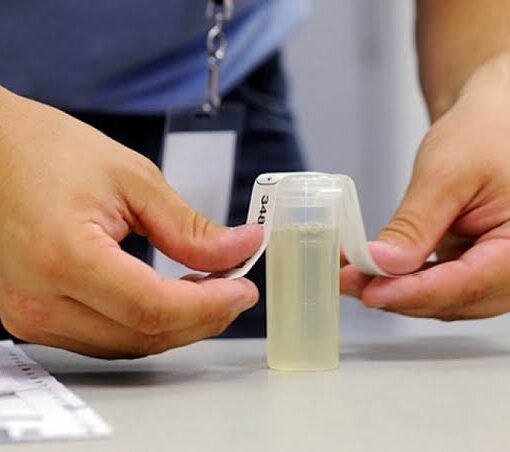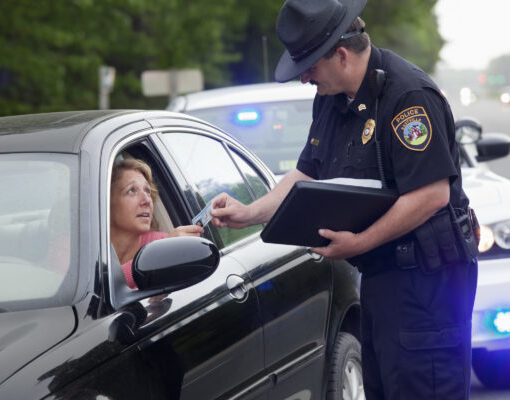The question of whether cameras are allowed in bathrooms is a matter of great importance, blending privacy rights, security concerns, and legal considerations. In this in-depth overview, we will delve into the general rule regarding cameras in bathrooms and explore the exceptions that may exist in certain circumstances. Our objective is to provide a comprehensive understanding of this complex and sensitive topic.
General Rule: Are Cameras Allowed In Bathrooms?
As a general rule, cameras are not allowed in bathrooms, primarily due to privacy concerns. Bathrooms are considered one of the most private spaces in a person’s daily life, where individuals expect and deserve a high level of privacy. This expectation of privacy is rooted in both social norms and legal principles.
1. Social Norms: Bathrooms are places where individuals engage in personal activities such as bathing, using the toilet, and changing clothes. Society, as a whole, recognizes the need to preserve the sanctity of these activities, respecting individuals’ dignity and autonomy.
2. Legal Principles: Laws and regulations vary by jurisdiction, but many countries have established legal protections for privacy in bathrooms. For example, the United States has the Federal Wiretap Act and various state laws that prohibit the unauthorized recording of conversations or capturing images in private spaces without consent.
Exceptions: Are Cameras Allowed In Bathrooms?
While the general rule strongly discourages cameras in bathrooms, there are exceptions, which often revolve around legitimate security and safety concerns. It’s crucial to note that even in these exceptional cases, strict guidelines and safeguards should be in place to protect individuals’ privacy rights.
1. Public Restrooms and Commercial Establishments:
a. Security Cameras: Public restrooms in commercial establishments, such as shopping malls, airports, and restaurants, may have surveillance cameras for security purposes. These cameras are typically placed in common areas like entrances and exits, not within the enclosed stalls or private spaces.
b. Notice and Consent: In cases where surveillance cameras are installed in public restrooms, clear signage should be posted to notify individuals of their presence. This notice allows people to make informed choices about using the facilities, giving them the opportunity to exercise their consent.
2. Workplace Bathrooms:
a. Employee Safety: In some workplaces, especially those with a history of safety concerns or illegal activities, employers may install cameras in employee bathrooms to ensure the safety of their workers. However, such measures are highly regulated and subject to legal scrutiny.
b. Strict Regulations: When workplace cameras are present, strict regulations must be followed. Employees should be informed of the cameras, and the monitoring should be limited to areas where there is no expectation of privacy, such as common areas outside of bathroom stalls.
3. Law Enforcement and Investigations:
a. Criminal Investigations: In criminal investigations, law enforcement agencies may seek permission to place surveillance cameras in public restrooms as part of a broader effort to gather evidence. These instances require a court-issued warrant and adherence to strict legal procedures.
b. Balancing Privacy: Courts typically balance the need for evidence in criminal cases against an individual’s right to privacy. The use of cameras in bathrooms for investigations is considered an extreme measure and is subject to rigorous judicial oversight.
4. Home Security Systems:
a. Personal Bathrooms: In private residences, individuals may install security cameras for overall home protection. If a camera is placed in a bathroom, it should be oriented to capture only the entrance area, ensuring that it does not intrude upon the private space.
b. Family Consent: In household settings, all family members should be aware of and consent to the presence of such cameras. Consent is paramount to maintaining trust and respecting the privacy of those who share the living space.
In summary, the general rule is that cameras are not allowed in bathrooms due to privacy expectations and legal protections. However, exceptions exist, primarily in public restrooms with security cameras, workplaces with safety concerns, law enforcement investigations, and home security systems. In all cases, transparency, notice, and consent are essential to strike a balance between privacy rights and legitimate security or safety concerns. It is crucial to stay informed about the laws and regulations specific to your jurisdiction, as they may vary significantly regarding the use of cameras in bathrooms. Ultimately, respecting the privacy of individuals in this most intimate of spaces should be a fundamental guiding principle.
Are Cameras Allowed In Employees’ Bathrooms?
General Rule: Are Cameras Allowed In Employees’ Bathrooms?
The general rule regarding cameras in employees’ bathrooms is straightforward: it is almost universally prohibited. This prohibition stems from a combination of privacy laws, workplace regulations, and ethical considerations.
1. Privacy Laws:
Most countries have privacy laws that prohibit any form of surveillance in areas where individuals have a reasonable expectation of privacy, such as bathrooms. In the United States, for example, the Electronic Communications Privacy Act (ECPA) and similar state laws make it illegal to record or monitor employees in private spaces without their consent.
2. Workplace Regulations:
Workplace safety and privacy regulations also discourage the use of cameras in bathrooms. The Occupational Safety and Health Administration (OSHA) in the U.S., for instance, requires employers to provide a safe and healthy work environment, which includes respecting employees’ privacy in restrooms.
3. Ethical Considerations:
Beyond legal obligations, there are ethical concerns associated with installing cameras in bathrooms. It’s a violation of trust and personal boundaries, eroding employee morale and potentially leading to legal consequences and reputational damage for employers.
Exceptions: Are Cameras Allowed In Employees’ Bathrooms?
While the general rule is clear, there are exceptions in which cameras may be allowed in employees’ bathrooms. These exceptions are rare and come with stringent conditions:
1. Investigations of Criminal Activities:
In cases where there is credible evidence of criminal activities occurring within the restroom, such as drug use or theft, employers may consider installing cameras temporarily. However, this action should be taken under the guidance of legal counsel and law enforcement authorities.
2. Security Concerns:
In high-security environments, like prisons or certain government facilities, cameras might be installed for security purposes. However, even in these cases, strict regulations and oversight are in place to protect employee privacy.
3. Consent:
In some unique situations, employees may voluntarily consent to the installation of cameras in restrooms. This could be related to specific security concerns or personal preferences. However, obtaining clear and informed consent is paramount, and employees should have the option to withdraw their consent at any time.
4. Gender-Neutral Bathrooms:
In workplaces where gender-neutral or all-gender restrooms are provided, employers may install cameras, but only in compliance with strict privacy regulations and guidelines. Access should be granted solely for security purposes and not for voyeuristic reasons.
Cameras in employees’ bathrooms are generally prohibited due to privacy laws, workplace regulations, and ethical considerations. Exceptions exist in cases of criminal investigations, security concerns, informed employee consent, and gender-neutral restrooms, but these exceptions are subject to stringent conditions and oversight. Balancing security and privacy is a complex challenge for employers, necessitating a deep understanding of the legal and ethical dimensions of workplace surveillance. Always consult with legal experts to ensure compliance with relevant laws and regulations while respecting the fundamental right to privacy for employees.
RELATED:
Is It Illegal To Lean Or Sit On Someone’s Car? (Answered)
Parole Date vs. Discharge Date: An In-Depth Analysis
Is It Illegal To Leave A Note On Someone’s Door? (Answered)
Frequently Asked Questions
1. Can I Legally Install a Camera in My Own Bathroom for Security Purposes?
Installing a camera in your own bathroom for security purposes is generally allowed, but there are important considerations. Privacy laws vary by jurisdiction, so it’s essential to research and understand the legal requirements in your area. In most cases, you should orient the camera to monitor the entrance area of the bathroom rather than the private spaces within it. Additionally, all individuals living in the household should be informed and consent to the camera’s presence to maintain trust and respect for their privacy.
2. What Should I Do If I Discover a Hidden Camera in a Public Restroom?
Discovering a hidden camera in a public restroom is a violation of privacy and a serious concern. If you encounter such a situation, do not touch the camera or tamper with it, as it may be considered evidence. Instead, leave the restroom immediately and report the incident to the establishment’s management, security personnel, or local law enforcement. They will take appropriate actions to investigate and address the situation.
3. Are There Any Penalties for Illegally Installing Cameras in Bathrooms?
The penalties for illegally installing cameras in bathrooms can be severe, as it constitutes a breach of privacy and, in many cases, a violation of the law. Penalties may include fines, imprisonment, or both, depending on the jurisdiction and the circumstances of the offense. Additionally, victims of such invasions of privacy may pursue civil legal action against the perpetrator for damages.
4. Can Employers Monitor Employee Bathrooms for Security or Misconduct?
Employers may have legitimate reasons to monitor employee bathrooms, primarily for safety and security concerns. However, this practice is highly regulated and subject to strict legal requirements. Employers must provide clear notice to employees about the presence of cameras in bathroom areas. Monitoring should be limited to common areas outside of bathroom stalls to respect employee privacy rights.
5. Do Body Cameras Worn by Law Enforcement Officers Apply to Bathrooms?
Body cameras worn by law enforcement officers are typically designed to capture audio and video evidence during interactions with the public. These cameras should not be activated or used in bathrooms or other private spaces where individuals have a reasonable expectation of privacy. Police departments and officers are generally trained to adhere to strict protocols to ensure the privacy of individuals in such settings.
In conclusion, while cameras in bathrooms remain a sensitive and complex issue, these additional FAQs provide further insights into various aspects of the topic. Whether it’s about the legality of installing a camera for personal security, discovering hidden cameras in public restrooms, penalties for illegal installations, employer monitoring, or the use of body cameras by law enforcement, it is crucial to be aware of the legal and ethical considerations surrounding the use of cameras in bathroom settings. Respecting privacy rights and adhering to relevant laws and regulations should always be a top priority.
Last updated on: April 11, 2024




